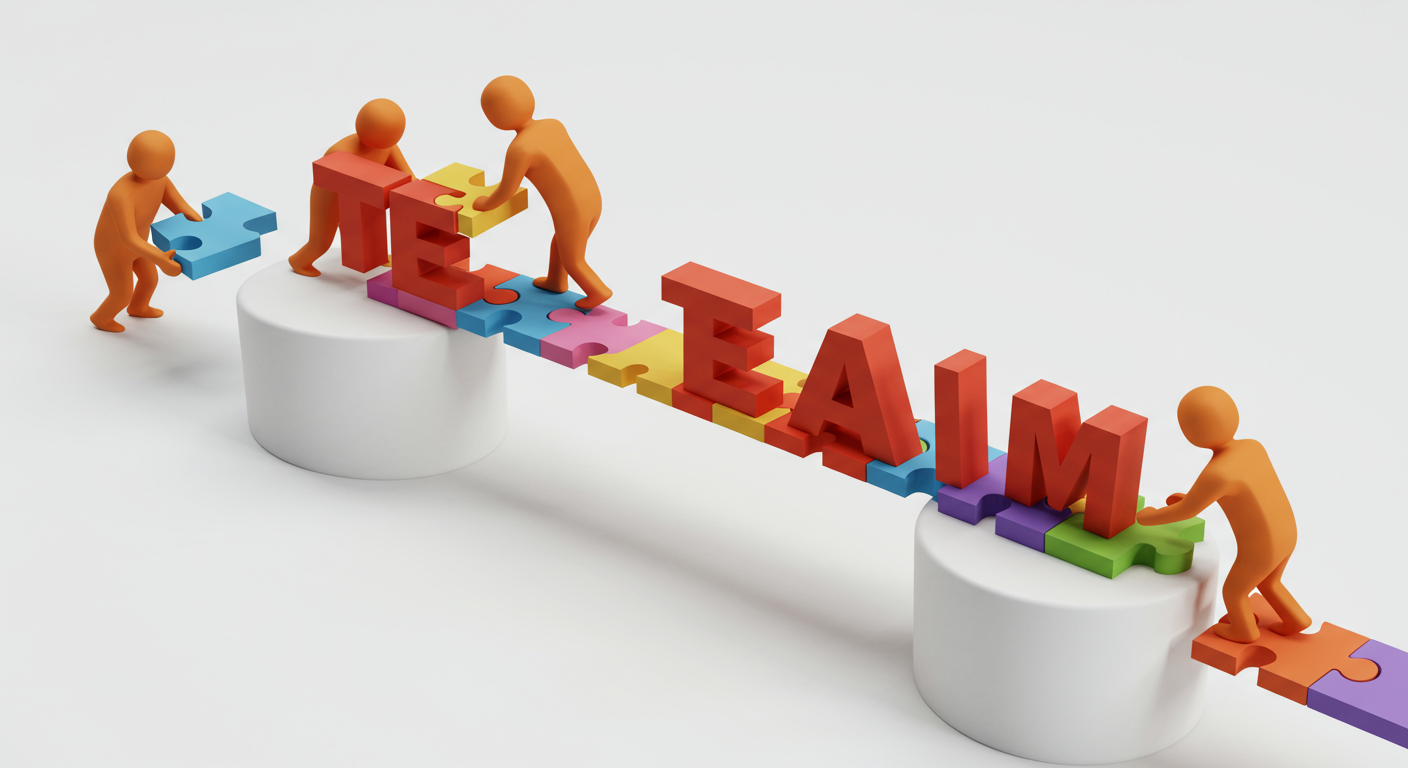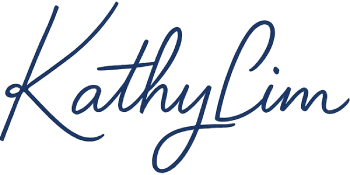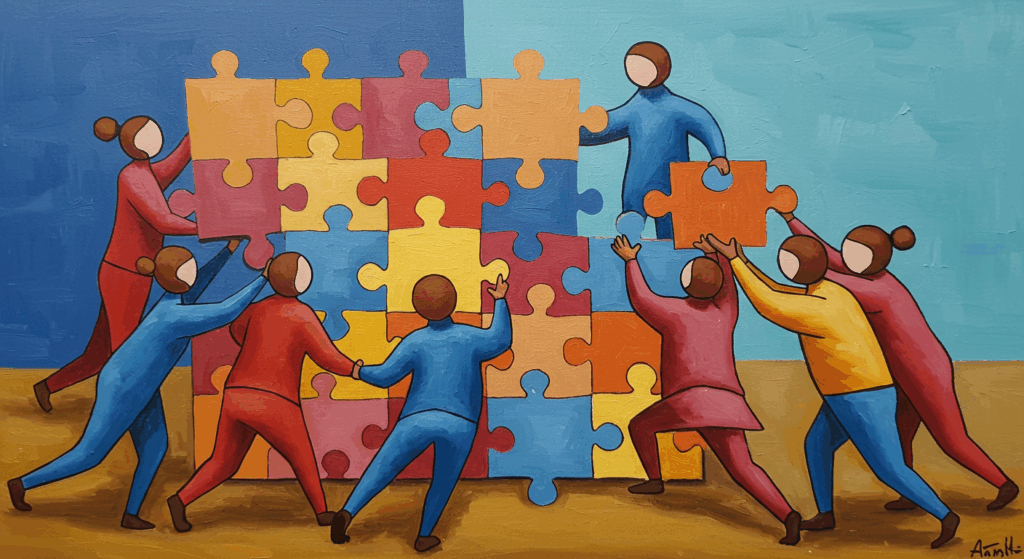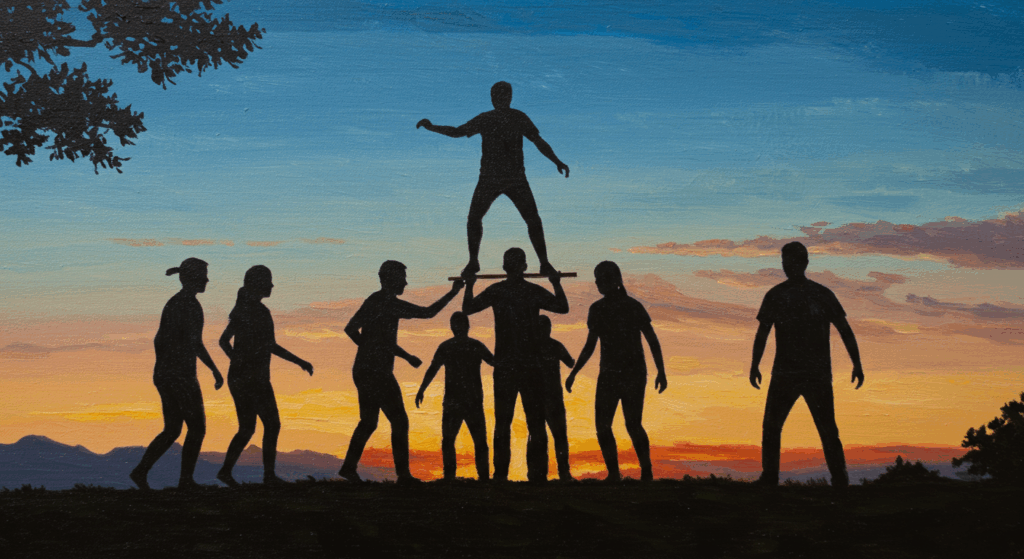The phrase “team development” doesn’t exactly scream excitement. It kinda sounds like the title of some boring mandatory HR workshop with free stale bagels and lukewarm coffee, right? But here’s the thing—team development is literally everywhere in your life.
Whether you’re working on a school project, hustling at your 9-to-5, starting your own side gig, or just trying to plan a group vacation with your chaotic friends (which honestly feels harder than most jobs), you’re developing a team. And ngl, it can be messy. Personalities clash, deadlines get missed, people ghost (just like dating apps), and suddenly the vibe is… not great.
But when a team works? Like really works? It feels magical. Collaboration flows, leadership feels natural, and the whole squad grows together instead of falling apart. Honestly, it’s like finding that perfect Netflix show that actually sticks the landing in the final season (rare, but we take the wins when we can).
So yeah, let’s dive into team development without the boring jargon. I’ll break it down in a way that feels like advice from a friend instead of a corporate handbook. Grab your coffee, or boba, or energy drink (no judgment), and let’s chat.
Why Team Development Actually Matters
Okay, so imagine your last group project. Maybe it was at school, maybe work, maybe even organizing a Friendsgiving dinner (which btw, is secretly a nightmare-level logistics job). You probably had a mix of personalities:
- The overachiever who color-codes everything.
- The laid-back one who’s like, “yeah, whatever works.”
- The quiet thinker who actually has the best ideas but barely speaaks up.
- And maybe someone who straight-up disappears until the last minute.
Without development, that’s chaos. But with a little structure, some trust, and honeist communication? Suddenly things click. Everyone knows their role, there’s less drama, and the project doesn’t feel like pulling teeth. That’s basically the point of team development—taking random humans and helping them actually work together without losing their minds.
The Classic Stages of Team Development
Here’s the wild part—there’s actually a model for how teams grow. It’s kinda like a video game where you level up through different stages. The most famous breakdown is:
Forming: The First Date Energy
This is the “hey, nice to meet you” stage. Everyone’s polite, nobody wants to be awkward, and communication feels super surface-level. Think first date vibes—you don’t know whether to order the messy burger or stick with the salad.
Leadership matters a ton here. Someone has to set the tone and make people comfortable, or else the group stays stuck in small-talk mode forever.
Storming: The Drama Stage
Oh boy. This is when the gloves come off. People start disagreeing, different work styles clash, and suddenly there’s tension. But here’s the kicker: this phase is necessary. You can’t get to real collaboration without pushing through the conflict first.
Growth usually happens here, even if it feels uncomfortable. The trick is handling the disagreements without blowing up the group chat.
Norming: Finding the Groove
This is when things settle. Roles are clearer, trust builds, and communication feels smoother. It’s like when a friend group finally agrees on the go-to hangout spot—less chaos, more flow.
Performing: The Dream Phase
This is peak team energy. Collaboration feels effortless, leadership is supportive instead of bossy, and growth is obvious. Everyone’s bringing their A-game, and the vibe is strong. This is where you wanna be.
Adjourning: The Bittersweet Goodbye
Sometimes projects end. Teams break up. And yeah, it’s kinda sad—like finishing your fav TV show—but it also means you did what you came to do. The lessons stick, and you carry them into the next squad you join.
The Big Three: Collaboration, Leadership, Growth
So, what actually makes team development work? Honestly, it comes down to three ingredients.
Collaboration: More Than Just “Working Together”
Collaboration isn’t just tossing ideas in a group chat. It’s actively listening, respecting boundaries, and building something together.
Some practical stuff:
- Use toolls that make life easier (Notion, Trello, Miro, Google Docs—whatever works).
- Don’t dominate convos. Nobody likes the person who thinks every idea is a TED Talk.
- Respect people’s off-time. Not everything marked “urgent” actually is.
When collaboration is healthy, the team feels like equals, not a hierarchy pretending to be teamwork.
Leadership: Not Just a Title
Real talk—leadership isn’t about who has “manager” in their job title. It’s about guiding without controlling, encouraging without micromanaging.
Good leaders:
- Build trust.
- Let others shine.
- Know when to step back.
And honestly, leadership can rotate. Sometimes the quiet one steps up at the perfect moment. Think of it like DJ-ing a party—everyone gets a turn on the aux, and the mix is way better because of it.
Growth: The Glow-Up
Without growth, teams stagnate. Growth means people are learning, leveling up, and feeling stronger as a squad.
A growing team isn’t just hitting deadlines—it’s gaining new skills, new confidence, and new energy. That’s what makes the difference between a group that survives and one that thrives.
Things That Can Totally Wreck Team Development
Let’s not sugarcoat it. Teams hit walls all the time.
- Bad communication: Vague instructions, mixed signals, passive-aggressive emojis—yeah, it kills momentum.
- Toxic leadership: If the leader’s controlling or shuts down ideas, growth dies.
- Lack of trust: If people don’t feel safe to speak up, you’re stuck in storming forever.
- Unclear goals: You can’t perform well if nobody even knows the endgame. It’s like playing a video game without knowing the rules.
Tips That Actually Work in Real Life
Theory is cute, but here’s the stuff that makes a difference day-to-day:
- Set clear goals early. Even if they change, at least everyone knows the direction.
- Celebrate small wins. Don’t just wait for the giant project finish line. Celebrate making it through a tough week.
- Rotate roles. Give people the chance to try leadership or creative tasks they wouldn’t normally take on.
- Keep it honest. Even messy honesty is better than fake “everything’s fine.”
- Mix in fun. Friday coffee breaks, shared memes, random check-ins—fun bonds matter as much as the work.
Team Development Beyond Work
Here’s the underrated part: team development isn’t just a “work” thing. It shows up in literally every group you’re part of.
- Your roommates planning a trip.
- Your band writing songs.
- Your gaming squad strategizing in ranked matches.
- Even your family group chat trying to decide on dinner plans (okay, maybe that one’s impossible).
The point is, the skills of collaboration, leadership, and growth carry everywhere. If you learn how to do team development well, you’re basically leveling up your whole life.
The Emotional Side Nobody Talks About
Here’s something we don’t talk about enough—team development is emotional. It’s not just checklists and deadlines. It’s people bringing their insecurities, energy levels, and personal struggles into the mix.
Great teams make space for that. They allow for bad days, celebrate personal wins, and treat each other like humans, not just “roles.” Because when people feel seen, collaboration gets way easier, and growth feels natural.
Wrapping It All Up
So yeah, team development isn’t just a boring buzzword. It’s the process of learning how to work with other humans without losing your mind. It’s messy, sure, but it’s also kinda beautiful when it works.
Remember: collaboration connects people, leadership guides them, and growth keeps everything moving forward. Even if your team’s stuck in storming right now, don’t give up—it’s part of the process.
Final Takeaway
At the end of the day, team development is like making a playlist with friends. At first, it’s awkward—who picks the first song? Then there are debates (why so much Taylor Swift? why so much EDM?). But eventually, you end up with something better than you could’ve created solo.
So be that teammate who listens, encourages, and pushes for growth. The kind of person who makes the squad stronger just by showing up authentically.
Because the world? It could use a few more people like that.
Your move: Next time you’re in a group—work, school, or even just planning brunch—try leaning into team development. It might just change everything.









